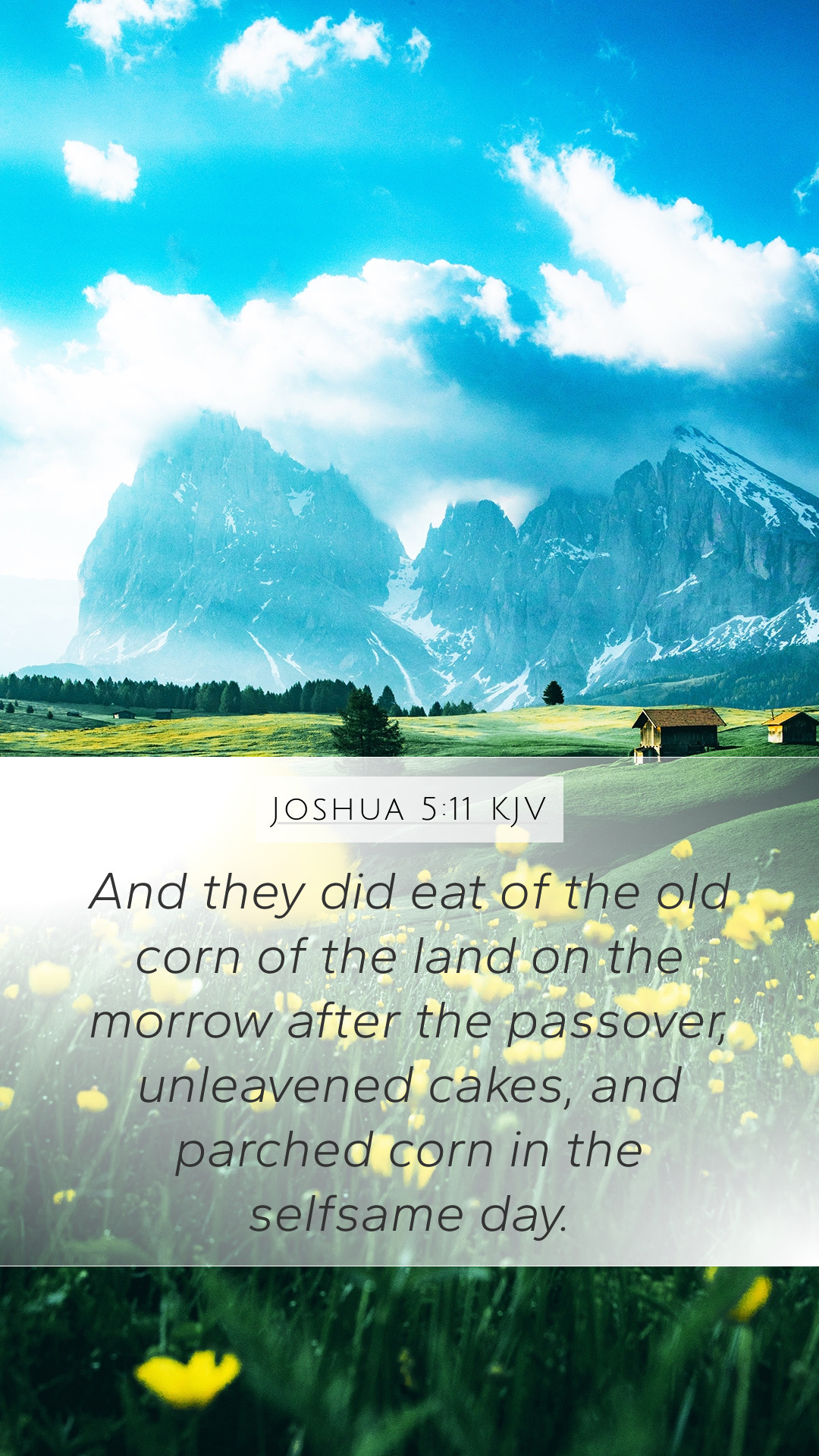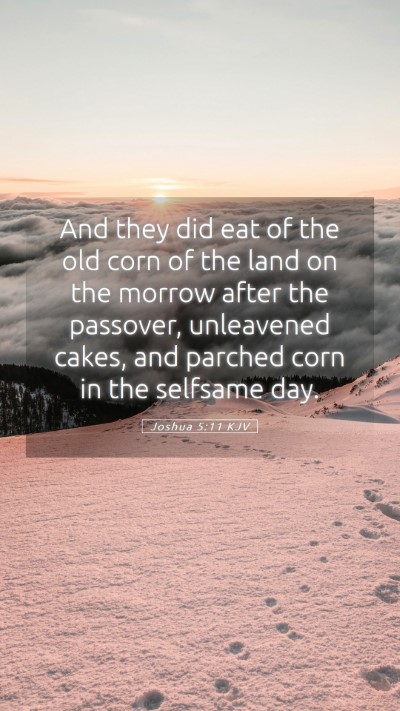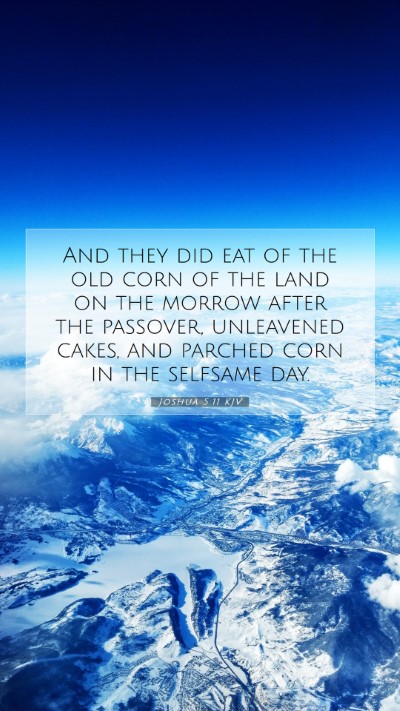Old Testament
Genesis Exodus Leviticus Numbers Deuteronomy Joshua Judges Ruth 1 Samuel 2 Samuel 1 Kings 2 Kings 1 Chronicles 2 Chronicles Ezra Nehemiah Esther Job Psalms Proverbs Ecclesiastes Song of Solomon Isaiah Jeremiah Lamentations Ezekiel Daniel Hosea Joel Amos Obadiah Jonah Micah Nahum Habakkuk Zephaniah Haggai Zechariah MalachiJoshua 5:11 Meaning
What is the meaning of Joshua 5:11?
And they did eat of the old corn of the land on the morrow after the passover, unleavened cakes, and parched corn in the selfsame day.
Joshua 5:11 Bible Verse Meaning
Bible Verse Commentary on Joshua 5:11
Joshua 5:11: "And they did eat of the old corn of the land on the morrow after the Passover, unleavened cakes, and parched corn in the selfsame day."
Overview of the Verse
This verse occurs during a critical moment in Israel's history as they prepare to enter the Promised Land. The consumption of the old corn symbolizes a new chapter as they transition from wilderness wanderings to a society established in God's promised blessings.
Insights from Public Domain Commentaries
-
Matthew Henry:
Henry emphasizes the spiritual significance of the Israelites eating the produce of the land shortly after the Passover. This act symbolizes God's provision and the blessings of a new beginning. It highlights the importance of faith in receiving God's promises as they follow His commands.
-
Albert Barnes:
Barnes points out that the timing of this event is crucial as it marks the end of the Israelites' reliance on manna. The old corn signifies that God is fulfilling His promise to provide for His people in a new way, demonstrating the transition from dependence on miracle to enjoying the fruits of the land. This change showcases a significant shift in their relationship with God as they begin to inherit the land.
-
Adam Clarke:
Clarke draws attention to the nature of what they consumed – unleavened cakes and parched corn, identifying these items as reminiscent of their Exodus and implying a continuing narrative of deliverance. By eating these foods, they both commemorate their past and celebrate their future, revealing layers of meaning in terms of tradition and divine providence.
Meaning and Interpretation
In examining this verse, we uncover profound themes of continuity, remembrance, and anticipation:
- Transition to Abundance: The Israelites’ ability to eat from the land they had entered signifies not just sustenance, but an entrance into a life of abundance that God had promised.
- Remembrance of Deliverance: Eating unleavened bread was an act of remembering their liberation from Egypt; it interweaves their past with present blessings and future hopes.
- God’s Faithfulness: This moment reaffirms the faithfulness of God, who provided for them in miraculous ways and now invites them to partake of the bounty of the land, signaling an end to their nomadic lifestyle.
Application in Daily Life
For modern readers, Joshua 5:11 serves as a reminder of the importance of recognizing God’s provision in our lives. As we navigate transitions, whether in understanding Scripture or in personal circumstances, we are encouraged to:
- Reflect on God's past blessings to strengthen faith for the future.
- Embrace changes in life as opportunities for growth and increased reliance on God's promises.
- Engage with community, such as Bible study groups, to explore interpretations and applications of Scripture together.
Cross References
- Exodus 12:17: Discusses the command regarding the Passover and its significance.
- Exodus 16:35: Refers to the manna that fed the Israelites in the wilderness.
- Deuteronomy 8:8: Describes the good land God is bringing them into, overflowing with blessings.
- Hebrews 11:9-10: Reflects on faith in the promise of inheriting the land.
- Leviticus 23:4-6: Concerns the feasts, including Passover.
Conclusion
The depth of Joshua 5:11 provides rich ground for biblical exegesis and personal reflection. By understanding the significance of this verse, readers are equipped with essential Bible study insights that enhance their Bible study lessons and promote a deeper grasp of Scripture analysis.


